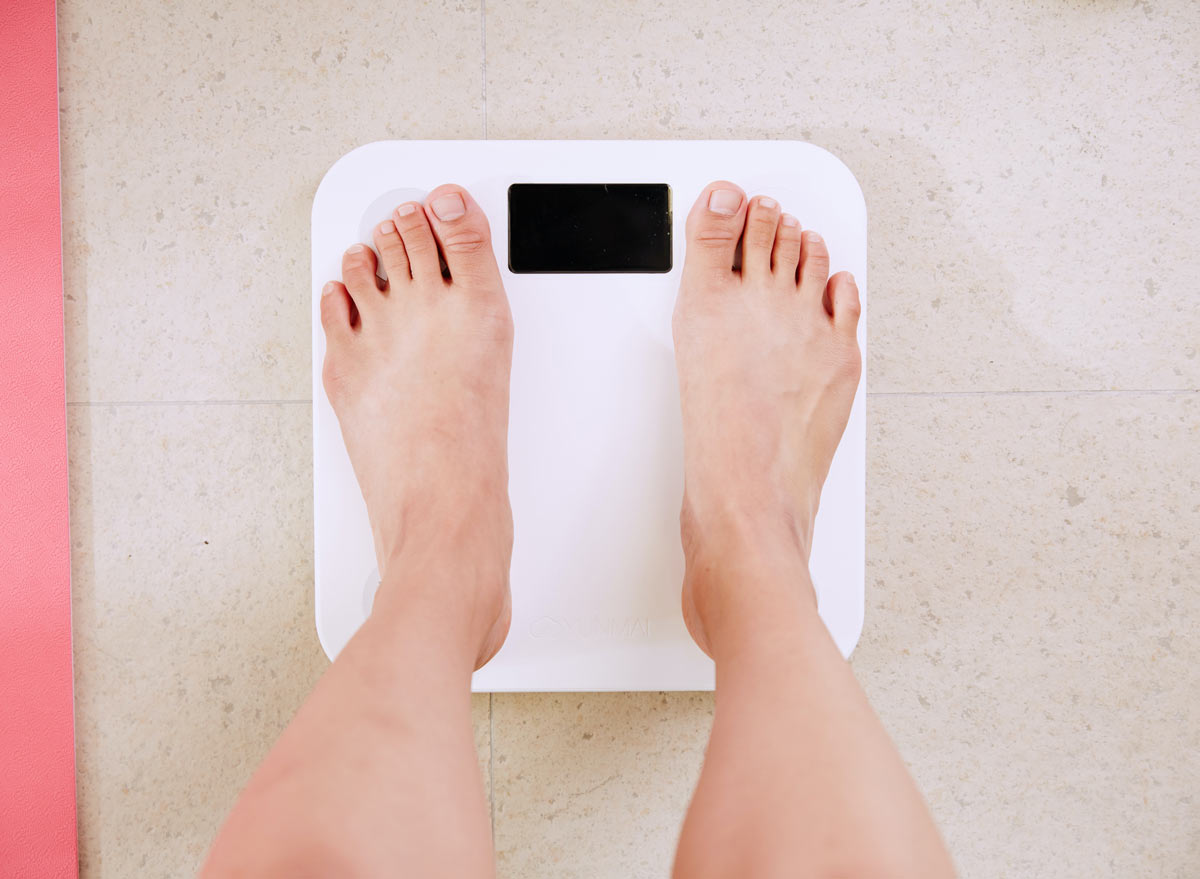9 Warning Signs You're Actually Gluten Intolerant

When you feel physically ill for months or even years at a time, it makes sense to look at your diet—especially when you've ruled out other reasons. You eat every day of your life: if something in your diet can't be digested correctly or you have an undiagnosed food allergy, continuing to consume that trigger could cause chronic sickness. One of the first ways to determine whether there's a problem with your diet is to cross-check whether your health problems line up with common gluten intolerance symptoms.
Gluten: it's the Western diet food that's commonly blamed for all kinds of ills—from diarrhea to fatigue to joint pain and more. Found in grains like wheat, rye, and barley, gluten is a protein that some people can't digest. Frequently, the inability to digest gluten is caused by an autoimmune condition called celiac disease, which results in damage to the small intestine. Other people don't have celiac disease but still suffer side effects from consuming gluten because they have non-celiac gluten sensitivity (NCGS).
It can be hard to diagnose NCGS: there are no specific tests for it, and symptoms can be similar to other GI conditions like Crohn's disease and irritable bowel syndrome. (A celiac diagnosis is easier to come by; it's typically detected with a combination of blood tests and intestinal biopsy.)
Either way, gluten can and does wreak havoc on some people's bodies—but it's important that you don't eliminate it from your diet unless you're sure you have an intolerance.
"There is no scientific evidence to suggest that avoiding gluten offers health benefits to patients without a diagnosis of celiac disease or non-celiac gluten sensitivity," says Lauren Harris-Pincus, MS, RDN, founder of NutritionStarringYOU.com and author of The Protein-Packed Breakfast Club. "In fact, going gluten-free unnecessarily can lead to nutrient deficiencies."
If you think you might have a gluten intolerance, here are 9 common warning signs to consider. Just remember to talk to your doctor about your concerns before going gluten-free so you can be sure you're assessing your diet correctly. If you're ready to take the next step, you'll need our guide: What Is a Gluten-Free Diet? This Is What RDs Want You to Know.
Digestive distress

Stomach upset can take on many different forms for the gluten intolerant, ranging from nausea and vomiting to constipation, diarrhea, gas, and bloating. According to Pincus, digestive woes are gluten intolerance symptoms that are most common in children with celiac disease. Adults, on the other hand, are less likely to suffer from GI issues like diarrhea and more likely to experience a host of other symptoms of gluten intolerance unrelated to the gut (more on those next).
Still, the Academy of Nutrition and Dietetics says that up to 80% of celiac sufferers report abdominal pain and bloating, 44% report nausea and vomiting, up to 80% report diarrhea, and almost 40% report constipation. If you're having chronic digestive issues, it makes sense to talk to your doctor about diagnosing the source.
Headaches

You might wonder how a digestive problem could give you headaches or even migraines, but it's totally possible if you have gluten intolerance or allergy.
"There are more than 200 known celiac symptoms that could appear in the digestive system or other parts of the body," says Pincus. "Some people may have no gluten intolerance symptoms at all, but are still at risk for long term complications."
Migraines are sometimes an early warning sign of celiac disease, but people with NCGS may experience severe headaches or migraines, as well. A 2013 study published in the journal Headache found that 30% of people with celiac disease and 56% of people with gluten sensitivity reported experiencing chronic headaches or migraines.
STAY INFORMED: Sign up for our newsletter to get the latest food news delivered straight to your inbox.
Anemia

An inability to digest gluten can inhibit your body's absorption of iron and make you iron deficient, or anemic. This may sometimes be the cause of other celiac-related symptoms like fatigue, headaches, and weakness.
People with NCGS may see also the effects of gluten on their iron levels; in a 2017 case study presented in the Journal of Human Nutrition, a patient who had been anemic for several years was finally able to regulate her iron levels after spending three months changing her diet to control her symptoms of NCGS. Besides reducing the amount of gluten in your diet, you can also remedy this problem by loading up on the best iron-rich foods.
Symptoms of malnutrition

Celiac disease damages your small intestine, which means it may affect your ability to absorb many nutrients. In some cases, these signs of malnutrition can be a clue that you have a chronic illness.
"Unexplained weight loss may often be a sign of celiac disease (not usually NCGS) due to the fact that it's an autoimmune condition that involves malabsorption," says registered dietitian Kristin Kirkpatrick, MS, RDN.
Other symptoms of malnutrition that may be caused by untreated celiac disease include bone loss or weakening and muscle deterioration.
Joint pain and arthritis

What does gluten have to do with your joints? Quite a bit, actually—if you have celiac disease, the gluten you consume can enter your bloodstream and cause inflammation both inside and outside your gut.
According to the Arthritis Foundation, this can lead to joint pain, swelling, and a worsening of arthritis symptoms. In fact, a 2019 study in the Journal of Community Hospital Internal Medicine Perspectives recommends regular rheumatoid arthritis (RA) screenings for patients with celiac disease, calling them a "high-risk group" after researchers discovered many had signs of preclinical RA.
Reproductive problems

There is still some debate about how closely celiac disease can be tied to reproductive issues like infertility, but since abnormal menstruation has been observed in women with celiac disease, there is enough reason to suspect it may also contribute to things like unexplained infertility, recurrent miscarriage, and preterm births, according to the National Institute of Diabetes and Digestive and Kidney Diseases. Some studies—like this one from Human Reproduction—have also explored a possible link between celiac disease and endometriosis, a common cause of infertility in women.
Anxiety and depression

In addition to the stress, anxiety, and depression that can come from having an undiagnosed illness making you sick, gluten sensitivity itself can also cause psychological disorders. Per a 2012 study published in Psychiatry Questions, as many as 22% of people with celiac disease and 57% of people with gluten sensitivity develop psychological disorders such as anxiety, depression, ADHD, bipolar disorder, and schizophrenia.
Skin rash

Rashes come in all shapes and sizes, brought on by dozens of different medical conditions. But there is a very specific kind of rash that often accompanies celiac disease: it's called dermatitis herpetiformis, or sometimes gluten rash or celiac rash. It's more common in male celiac sufferers than female, can occur on any part of the body, and is characterized by chronically itchy blisters or lesions.
It can be hard to tell the difference between a gluten rash and other common skin irritations, but a skin biopsy can confirm the diagnosis. Between 10 and 15% of people with celiac disease suffer from dermatitis herpetiformis.
Oral or dental problems

Discolored teeth, frequent mouth sores, or enamel defects are oral signs of celiac disease. In some cases, recurring canker sores may even be the only noticeable symptom of celiac disease, and as many as 25% of adult gluten allergy sufferers report having them. You may also notice yellow or brown spots on your teeth or pitting and ridges on the surfaces of your teeth. Children with celiac disease can be more prone to dental caries or even delayed tooth eruption.
Unfortunately, some oral problems—like diminished enamel—are irreversible, but going gluten-free can often prevent further damage and, in certain cases, improve the condition of the mouth. Before you go gluten-free, it might be worth knowing about these major diet missteps before you do: Is Your Gluten-Free Diet Fueling Other Bad Habits?








